October 1
The study, analysis and dissemination of Black History as an academic discipline are such integral parts of what we do and teach at UCL Americas that we feel one 'month' is not enough to celebrate it! Have a look at our study programmes, our research projects, our events, and what our staff and research students work on to have a glimpse at the variety of ways Black History means to us.
UCL Institute of the Americas is a leading multidisciplinary specialist institution for the study of Canada, the Caribbean, Latin America and the United States. We offer the UK's largest programme of undergraduate, masters and doctoral degrees on the Americas. We take pride in our inclusive and diverse staff and student communities.
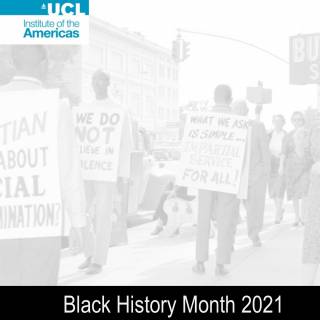
October 4
New event series: Race and Racism in the Americas. We were thrilled to launch this new event series, designed to build on the department’s research strengths in these two areas. It highlights our status as a home for scholarship that cuts across the disciplinary boundaries between humanities and social sciences, as well as the geographical boundaries between North America, Latin America, and the Caribbean. It is hoped it will bring together high-level scholarship and expertise from within the department, UCL, and fellow institutions both from the UK and abroad. This new series complements our existing series focusing on the Caribbean, Canada and its sister series Democracy and Governance in the Americas.
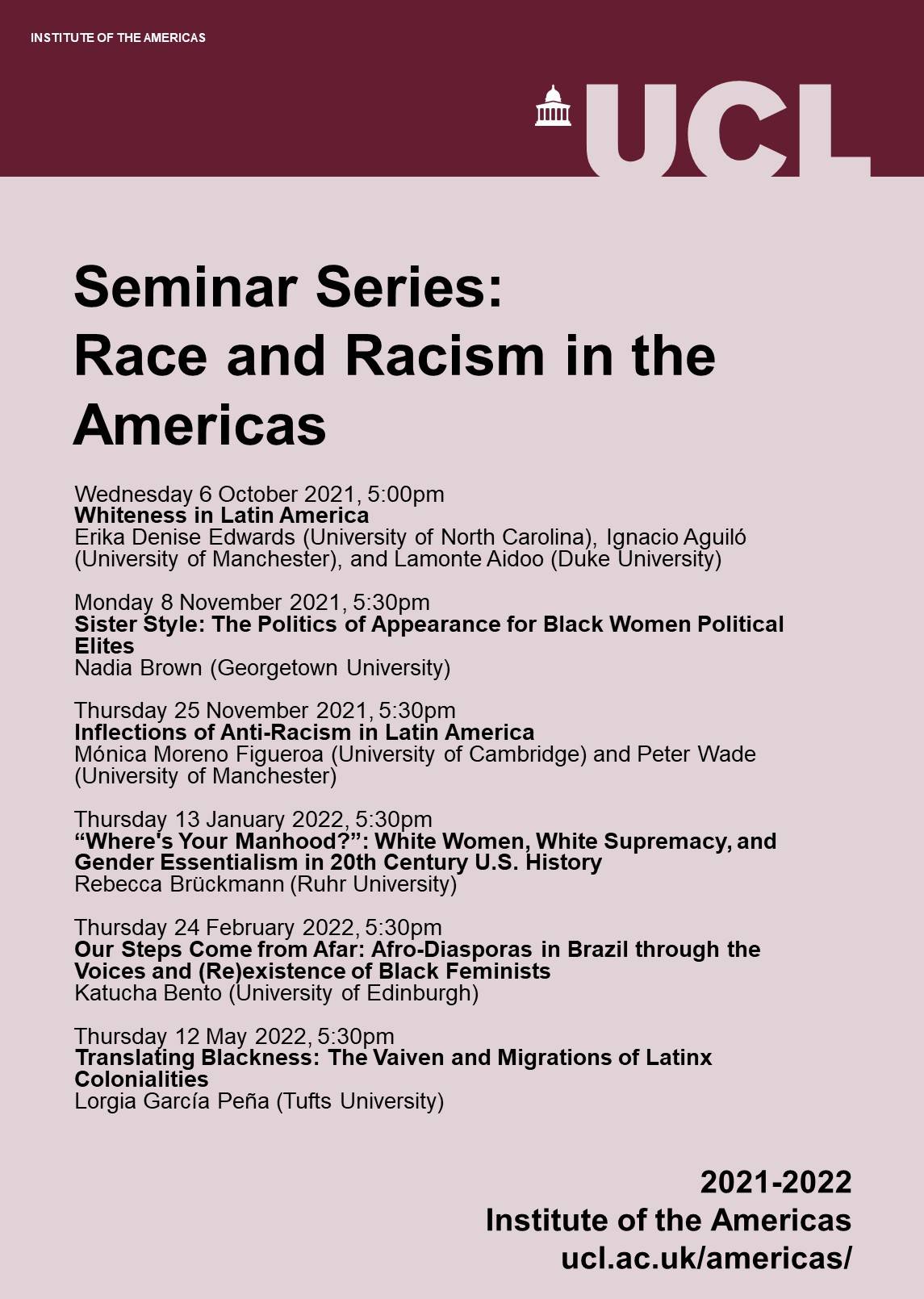
October 5
One of our most popular Masters modules is AMER0013: The Caribbean from the Haitian Revolution to the Cuban Revolution, led by Professor Gareth Davies. The development of Caribbean societies is crucial to our understanding of capitalism, imperialism, race, development and the mass movement of peoples, products and ideas that have shaped the modern world. From the founding of the first black republic in the Americas to the development of the first revolutionary socialist state in the Americas, this course examines the emergence of Caribbean nationhood in a region which experienced globalisation and multi-culturalism long before the terms came into vogue.
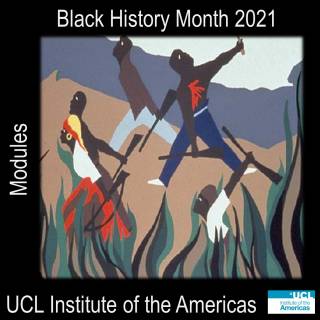 | 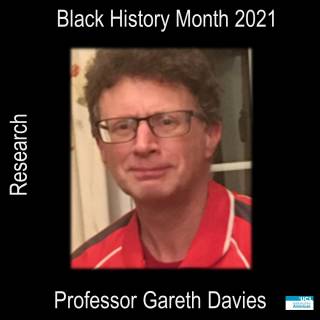 |
October 6
Dr Patricio Simonetto is currently Marie Skłodowska-Curie Fellow at UCL Americas and has been actively participating in the British academic arena since his arrival from Argentina in the autumn of 2020. He has convened a few events at UCL and other leading institutions both in the UK and further afield. He convened and chaired the inaugural event of our new series Race and Racism in the Americas, titled 'Whiteness in Latin America', with the participation of leading scholars Dr Ericka Denise Edwards (University of North Carolina, Charlotte), Dr Ignacio Aguiló (University of Manchester) and Dr Lamonte Aidoo (Duke University)
Video of 'Whiteness in Latin America' | October 6, 2021
October 7
Nurturing and helping to form the new generation of researchers and policy-makers is, in our view, one of the most effective ways to contribute to the advancement of scholarship and knowledge, so dear to our mission. Shodona Kettle is pursuing her PhD at UCL Americas. The working title of her research project is Reparative histories and healing contemporaries: A comparative investigation into transnational movements for reparations in the Americas.
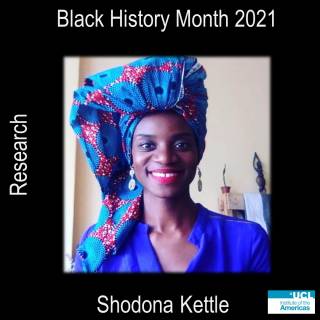 | 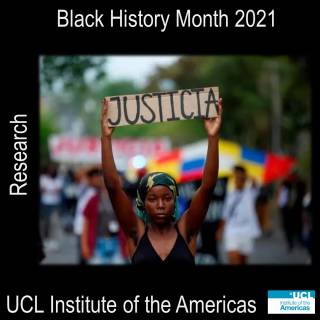 |
October 8
Naomi Oppenheim is pursuing her PhD students jointly at UCL Americas and The British Library. Her research project Countercultures of Print: History, Identity and Activism in Caribbean publishing in Britain, 1958-1982 uses print culture as a window onto post-war black settlement, the dawning of the post-colonial world, and explorations of racial identity within a context of dislocation. She is working under the supervision of Dr Kate Quinn (UCL Americas) and Dr Beth Cooper (The British Library). Naomi was a guest panellist at the 2nd New Perspectives on the History of African and Caribbean People in Britain Conference, organised by History Matters. She presented the paper ‘Black Publishing in Britain: a longer story’ on October 8 2021.
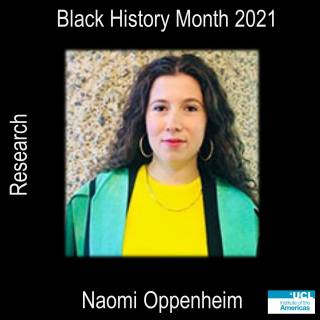 | 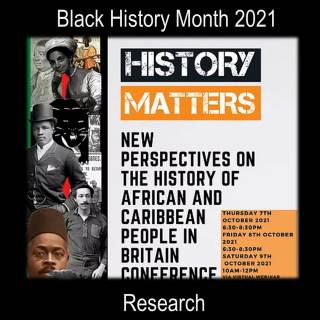 |
October 11
AMER0031: Race, Identity and US Foreign Policy. What does race, ethnicity, identity and gender have to do with US foreign policy? To what extent have America's wars been racialised? Why and with what consequences have minority groups engaged with, and sought to influence, US foreign policy? What impact have women had on US foreign policy and why have foreign policymakers found it useful to utilise gendered and racialised language? Using a transnational and thematic approach, Dr Zoe Hyman seeks to address these questions and examine the connection between race, ethnicity and American foreign policy in the twentieth century.
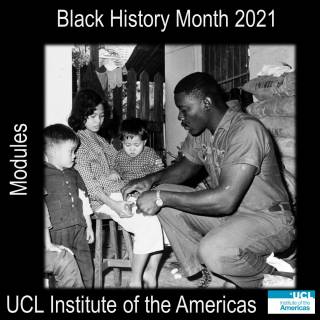 | 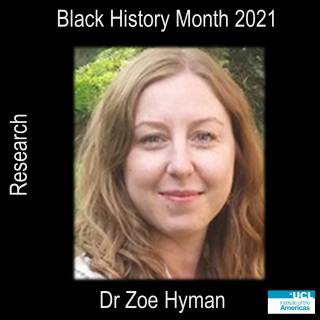 |
October 12
Black History goes well beyond a month at UCL Americas. One of our most important events this term is Barbados's Transition to Republic Status in Regional Perspective organised by Dr Kate Quinn. This expert panel discussion in collaboration with the AHRC-funded collaborative research project, The Visible Crown: Elizabeth II in the Caribbean, 1952 to the present will take place on November 10, and is part of our Caribbean Seminar Series. Organising this event for November 2021 is not fortuitous, as in it precisely next month, fifty-five years after independence, that Barbados will transition from a constitutional monarchy to a Republic. While the decision to become a republic has been broadly supported, the process of enacting this change is not without controversy. What are the implications – constitutional, symbolic, and material - for Barbados, and for the wider region? Why has Barbados succeeded in this endeavour where other Caribbean states have failed? To what extent is there political will or popular support to effect such a change elsewhere? Has ‘time come’ for the British monarchy in the Caribbean? Panellists: Professor Cynthia Barrow-Giles (University of the West Indies - Cave Hill); H.E. David Comissiong has served as Ambassador of Barbados to CARICOM since 2018; Dr Derek O’Brien (Oxford Brookes University); Professor Emerita Carolyn Cooper ( University of the West Indies, Mona, Jamaica) .
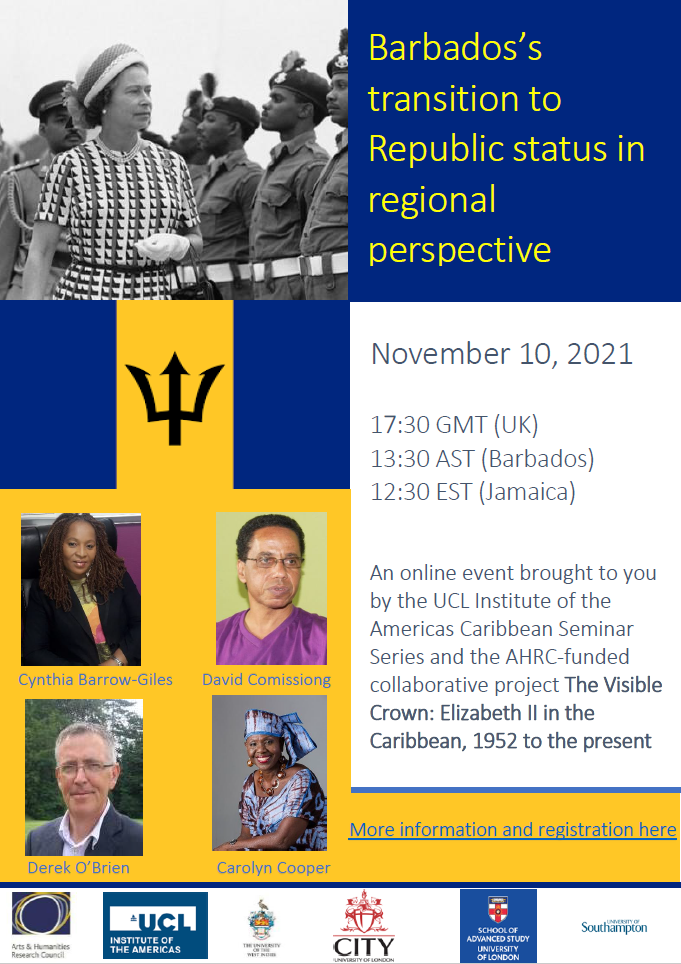 |
October 13
The assumption that US policy toward Africa was characterized by continuity during the cold war has recently been challenged by scholars who argue that President John F. Kennedy embarked on an African policy that was distinct from his predecessors. This may be true for black Africa, but Kennedy’s support for African nationalism did not extend to South Africa. This article reveals that Kennedy’s cold war priorities ensured continuity in US policy toward the apartheid state and, in some cases, additional cooperation as cold war crises increased the perceived importance of South Africa as an ideological and strategic ally and bastion against communism on a rapidly changing continent. Dr Zoe Hyman, wrote the fascinating article To have its cake and eat it too:" US policy toward South Africa during the Kennedy administration for volume 8 of ‘The Sixties. A Journal of History, Politics and Culture’. Dr Hyman welcomes prospective postgraduate students working on topics related to transnational American history and nineteenth/twentieth-century race relations, racial violence, and the American civil rights movement.
 | 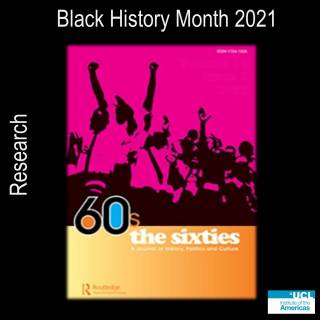 |
October 14
The first event of this term’s Caribbean Studies Seminars series was Deporting Black Britons. We are excited to host Dr Luke de Noronha from UCL SPRC to discuss the findings from his book 'Deporting Black Britons: Portraits of Deportation to Jamaica' (2020). In the last two decades, the UK has deported thousands of people to Jamaica. Many of these 'deportees' left the Caribbean as infants and grew up in the UK. Deporting Black Britons traces the life stories of four such men who have been exiled from their parents, partners, children and friends by deportation. It explores how 'Black Britons' survive once they are returned to Jamaica, and questions what their memories of poverty, racist policing and illegality reveal about contemporary Britain. Based on years of research with deported people and their families, Deporting Black Britons presents stories of survival and hardship in both the UK and Jamaica. These intimate portraits testify to the damage wrought by violent borders, opening up wider questions about racism, belonging and deservingness in anti-immigrant times.
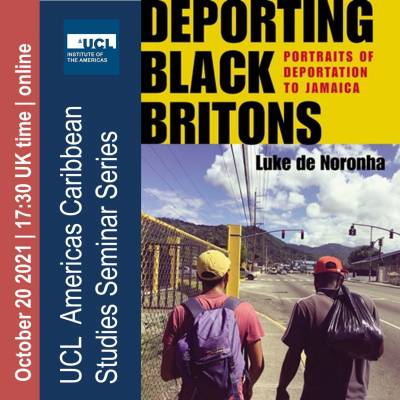 |
October 15
AMER0088:The Caribbean Radical Tradition, 1791-2020: Introduction to Black Intellectual History is one of the modules available to our undergraduate students. It’s led by Dr Kesewa John, Associate Lecturer (Teaching) in Caribbean History. The history of ideas underpinning and inspiring black activism has often been distilled down to individual, exceptional, black, male intellectuals (eg Fanon, Garvey, James). Challenging the assumption of the exceptionalism and masculinity of the Caribbean intellectual by situating renowned thinkers within black intellectual history, this module introduces studentsto some of the writings of Caribbean thinkers of the past 250 years. Highlighting black anti-enslavement writings, anti-imperialists, nation-builders, and black feminists the course introduces students to a range of Caribbean thinkers thematically and chronologically, enabling engagement with and understanding of the genealogy, historical context, and influence of radical Caribbean thought. Find out more about this and other modules, as well as Dr John’s research and teaching via the links Staff and UG Modules in our profile.
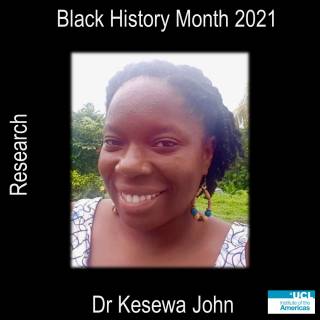 | 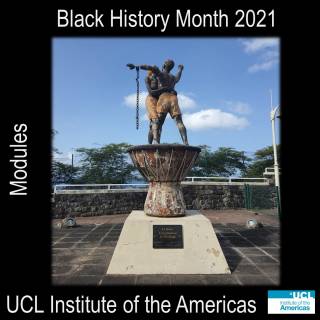 |
October 18
Haiti's history is one of revolution, intervention, and persistent underdevelopment. This book seeks to make sense of these challenging experiences through an examination of the political legacies of the Duvalier period and after. Revisiting the work of the late David Nicholls, widely acknowledged as a leading authority on Haiti, the chapters examine crucial questions of politics and power in Haiti, touching on issues of race and ethnicity, foreign intervention, economic development, and the impact of the devastating earthquake of January 2010. Leading academics and experts in Caribbean and Haitian Studies provide some of the keys to understanding the turbulent world of Haitian politics and the persistent challenges at home and from abroad which have distorted the country's development.
Politics and Power in Haiti is a book co-edited by Dr Kate Quinn and Professor Paul Sutton, published in 2013 by Palgrave MacMillan. Dr Kate Quinn is Associate Professor of Caribbean History at UCL Institute of the Americas.
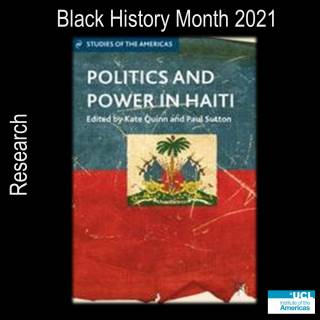 | 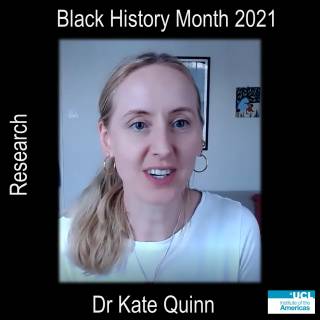 |
October 19
Heads up! Our PhD student Shodona Kettle will be moderating the first panel on Anti-racist and intersectional pedagogies at the congress Other pedagogies for Afro-descendant re-existence, organised by the Intercultural University of Nationalities and Indigenous Peoples, Quito, Ecuador, in celebration of Afro-Ecuadorian month. The event will take place on October 28 and 29, 2021. Register here.
 | 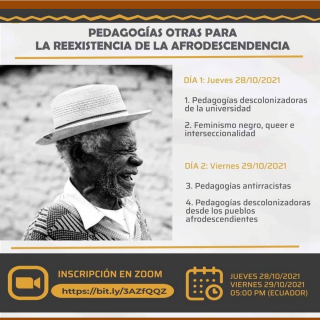 |
October 20
AMER0034: From Slavery to Freedom? Race, Class, Gender and Union in the Nineteenth Century US is a module that explores the history of the United States - with an emphasis on the American South - during the period c.1820‐1890. Its convenor is Dr Zoe Hyman.
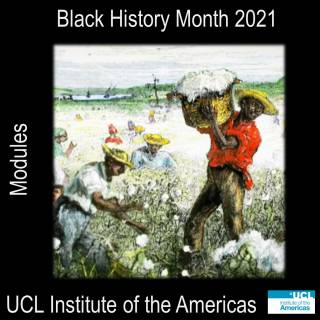 |  |
October 21
Maxine Molyneux, Professor of Sociology at UCL Institute of the Americas, is the chief editor of the Studies of the Americas series, published by Palgrave Macmillan. The series has seen the publication of over 80 titles by leading scholars in the fields of politics, culture, history and international relations, and other research fields. A significant number of books published in the series are relevant to Black History, with a specific regional focus on the Americas, amongst which:
The Obama Presidency and the Politics of Change
The Crisis of Multiculturalism in Latin America
Race, Class, and the Politics of Decolonization
Belize’s Independence and Decolonization in Latin America
Cultures of the Lusophone Black Atlantic
Socio-Political Histories of Statistics in Latin America and the Caribbean
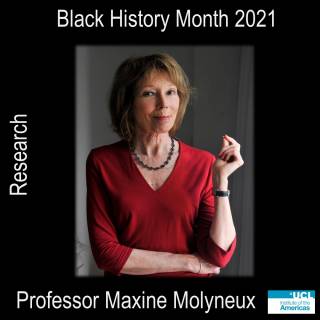 | 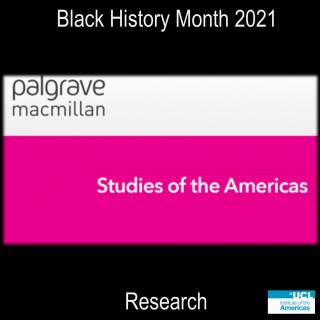 |
October 22
All welcome to book your free ticket for the online event that Shodona Kettle will be co-moderating with Professor Matthew J Smith (UCL History and Director of the UCL Centre for the Study of the Legacies of British Slavery – LBS) on today, starting at 18:00 UK time. The event is titled ‘Haiti Now and Then’. It is jointly hosted by the UCL LBS and the Haiti Support Group. This event brings together a panel of experts to consider and discuss recent events in the context of Haiti’s long history. Shodona will be participating in her capacity as Chair of Haiti Support Group.
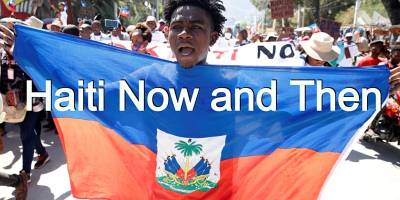
October 25
AMER0081: The Haitian Revolution provides an overview of the Haitian Revolution of 1791-1804, the only successful slave revolt in world history. It considers alternative explanations for this remarkable outcome, centring variously on slave leadership, pre-existent traditions of resistance, the French Revolutionary context, the power of ideas, and disease. This module is offered by Professor Gareth Davies.
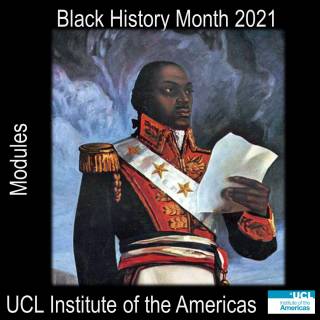 |  |
October 26
UCL Institute of the Americas is honoured to host Professor Nadia E. Brown (Georgetown University) for this, the second event of our new series Race and Racism in the Americas. Nadia E. Brown will speak about her new book Sister Style: The Politics of Appearance for Black Women Political Elites (Oxford University Press, 2021), which she co-authored with Dr Danielle Casarez Lemi. The talk will center on Black women’s bodies, specifically their hair texture and skin tone, to argue that phenotypic differences among Black women politicians directly impact how they experience political office and how Black voters evaluate them. Join series convenor Dr Nick Witham and seminar chair Dr Malu Gatto to welcome Professor Brown on November 8, 2021, starting at 17:30 UK. Register your attendance now!
 |
October 27
AMER0073: We Shall Overcome: The American Civil Rights Movement. This module, offered by Dr Zoe Hyman, traces the history of the civil rights movement through early challenges to Jim Crow, Supreme Court decisions, black grassroots activism, and violent white resistance, to the remarkable legislative achievements that, by the mid-1960s, had accomplished the initial goals of the movement.
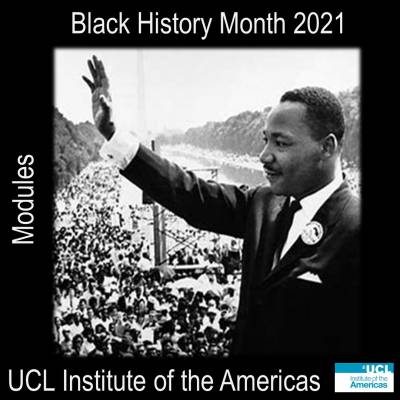 |
October 28
Dr Kate Quinn, Associate Professor of Caribbean History at UCL Institute of the Americas, is the co-editor of Beyond Westminster in the Caribbean: Critiques, Challenges and Reform (Ian Randle Publishers, 2018), together with Professor Brian Meeks (Brown University) . The book analyses Westminster governance in the post-independence Caribbean and reflects on the weaknesses of the model, the absence of a will to change despite the deficiencies and proposals for the way forward. Drawing on the contributions of distinguished scholars, prominent serving politicians and a sitting prime minister, the book offers a critical review of the state of Caribbean constitutions and a frank discussion of whether these small states can weather the threats that have presented themselves since the end of the Cold-War and the rise of neoliberalism. Can the Westminster model survive and thrive in the contemporary Caribbean, or is it time to move beyond Westminster?
Previously, as sole editor, Dr Quinn had published Black Power in the Caribbean (University of Florida Press, 2014). Black Power studies have been dominated by the North American story, but after decades of scholarly neglect, the growth of "New Black Power Studies" has revitalized the field. Central to the current agenda are a critique of the narrow domestic lens through which U.S. Black Power has been viewed and a call for greater attention to international and transnational dimensions of the movement. Black Power in the Caribbean highlights the unique origins and causes of Black Power mobilization in the Caribbean and its relationship to Black Power in the United States, ultimately situating the historical roots and modern legacies of the movement in a wider, international context.
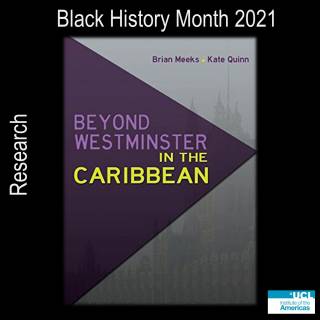 | 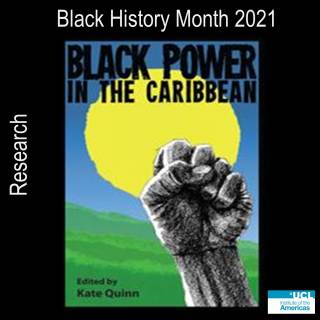 |  |
October 29
AMER0050: The Making of Modern America: The United States since 1920. Module convenor Dr Zoe Hyman offers a critical introduction to United States history from the end of World War I to the present day. It is made up of four thematic sections which focus on: the state and political development; gender and sexuality; the US and the world; and race and ethnicity.
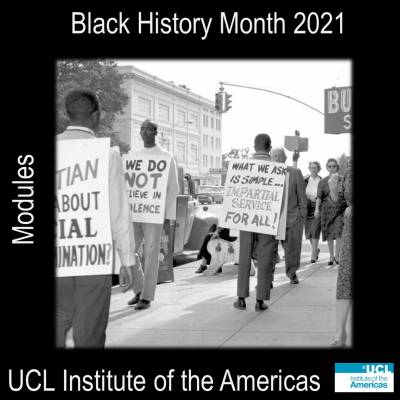 |
October 30
AMER0046: Protest Politics in the USA from the New Deal to Trump is a module convened by Jonathan Bell, Professor of US History and Director of the UCL Institute of the Americas that explores the history of the United States from the 1930s to the present day by examining the concept of ‘protest’ and its role in shaping the relationship between the state and its people.
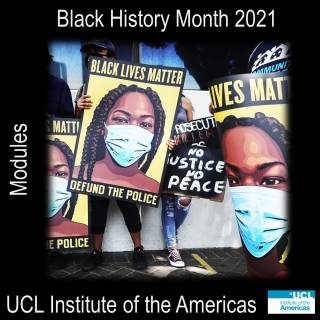 | 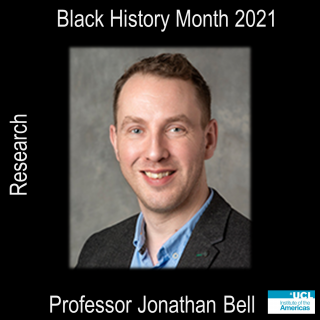 |
October 31
We are excited to collaborate with the Institute of Historical Research (IHR), together with other leading institutions, in the organisation of the IHR Latin American History Seminar and the IHR North American History Seminar series. The study, analysis and dissemination of various aspects of Black History is well represented in their event portfolio for this term. The Latin American History Seminar has organised events such as:
- ‘Afro-Mexican Kings and Queens: Black Joy, Sovereignty, and Being in Colonial Mexico’ (OCT 12)
- ‘Freedom’s Captives: Slavery and Gradual Emancipation on the Colombian Black Pacific’ (NOV 23)
Their North American History selection includes:
- “Plantation’ and the Rise of Capitalist Agriculture in the Seventeenth-Century English Atlantic’ (OCT 21)
- ‘Joint IHR-QMUL reading group: Grassroots Leviathan: Northern Agricultural Reform in the Slaveholding Republic’ (NOV03)
- ‘Boo, Bull, and Birmingham: To Kill a Mockingbird, Black Protest, and Racial Moderation’ (DEC02)
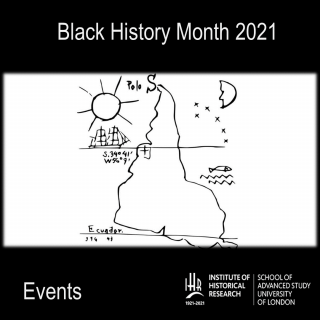 | 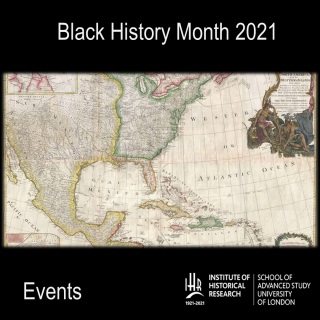 |
And with this post we conclude our showcase commemoration of Black History Month 2021, but the study of this fascinating field of history continues.
 Close
Close

